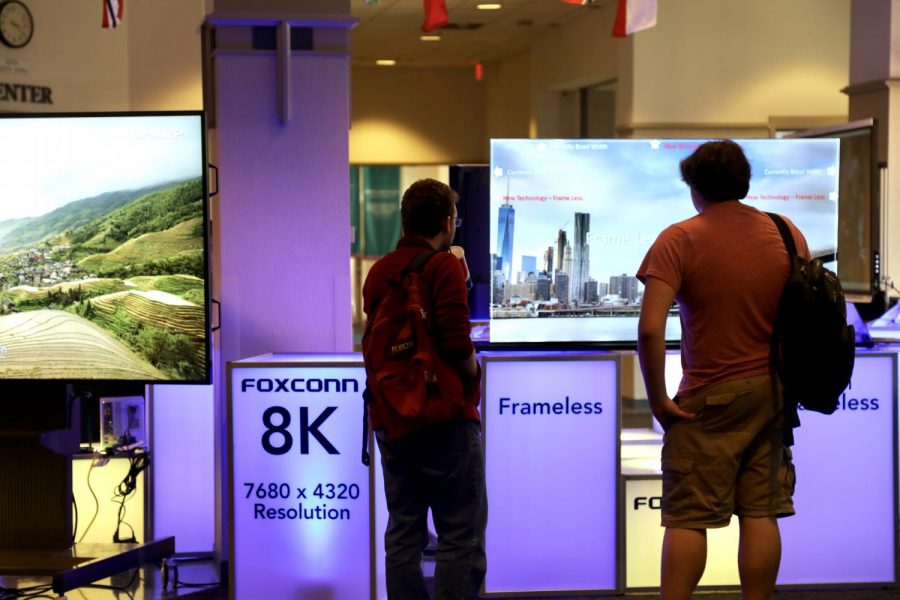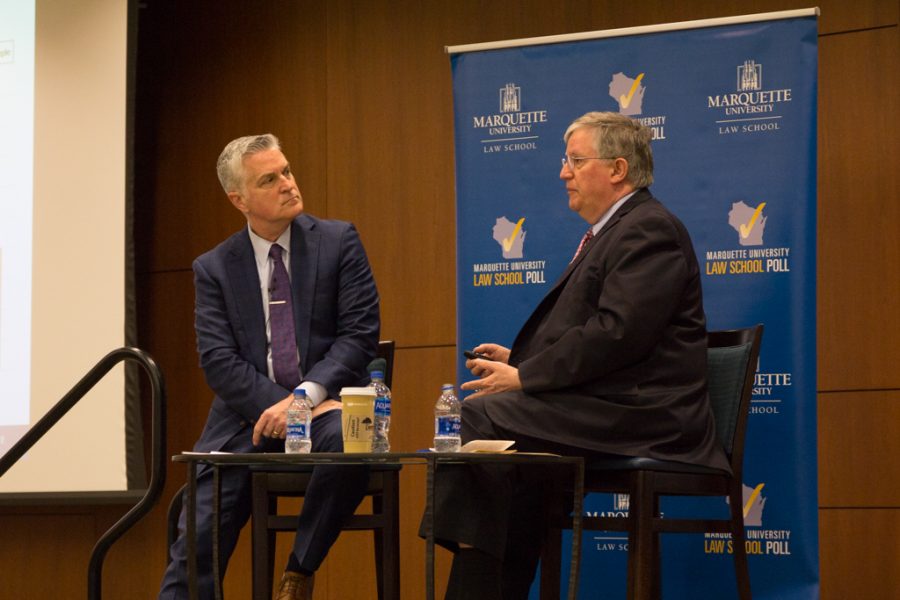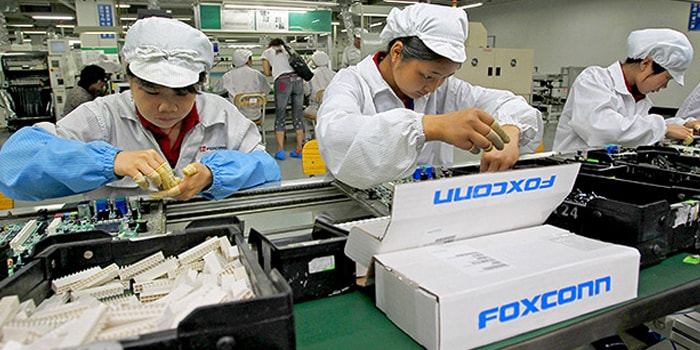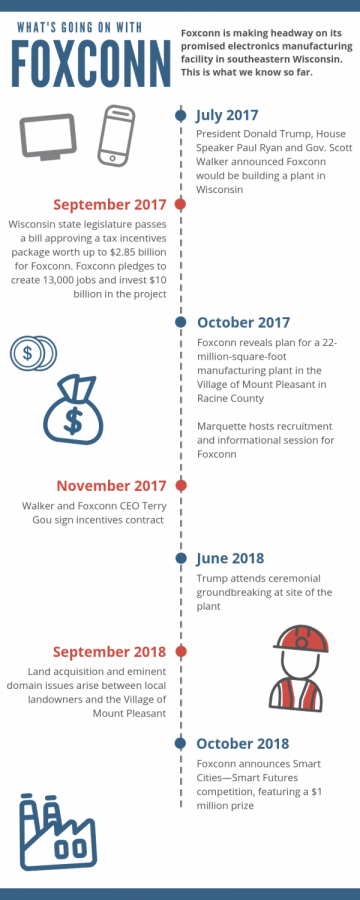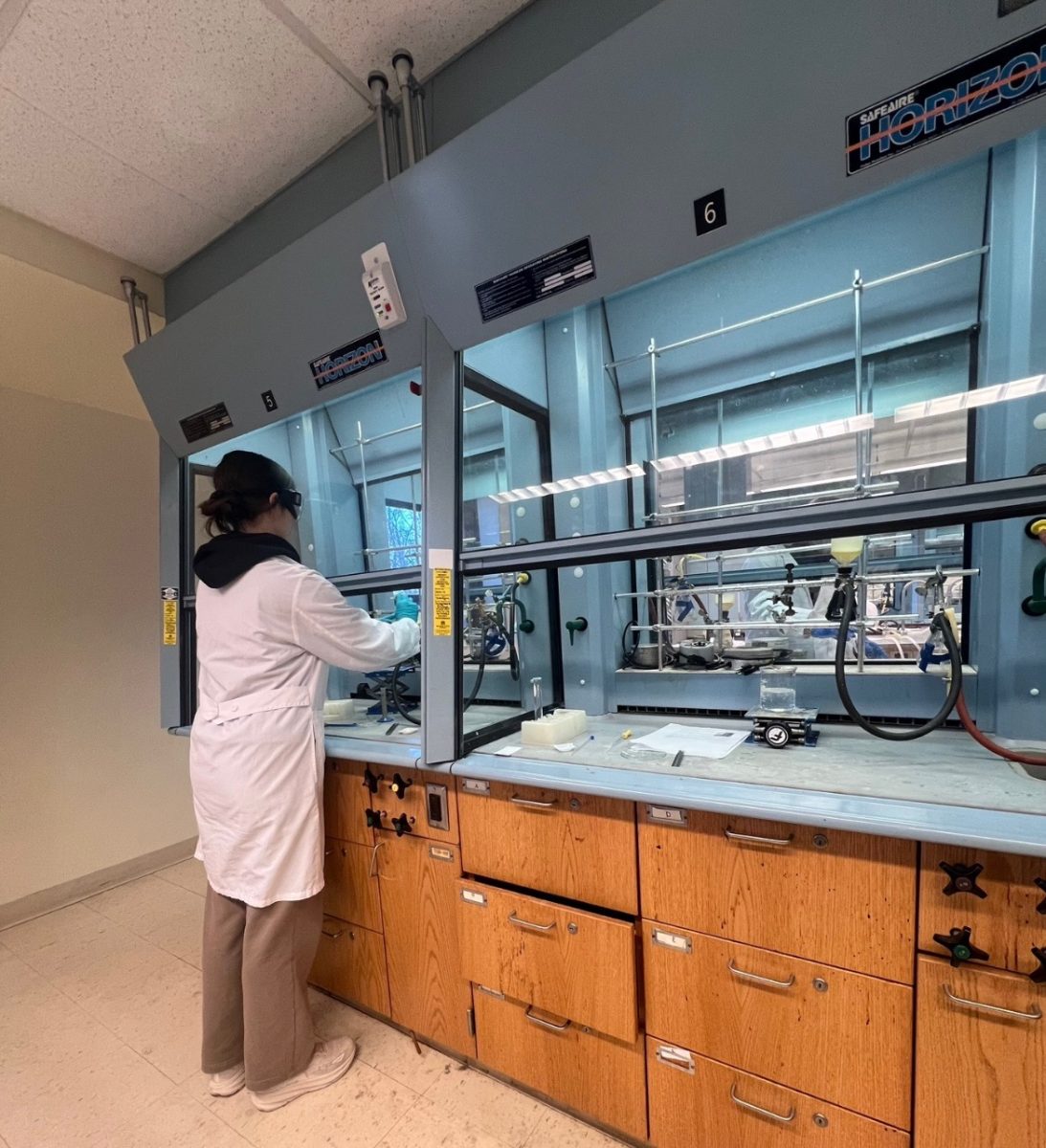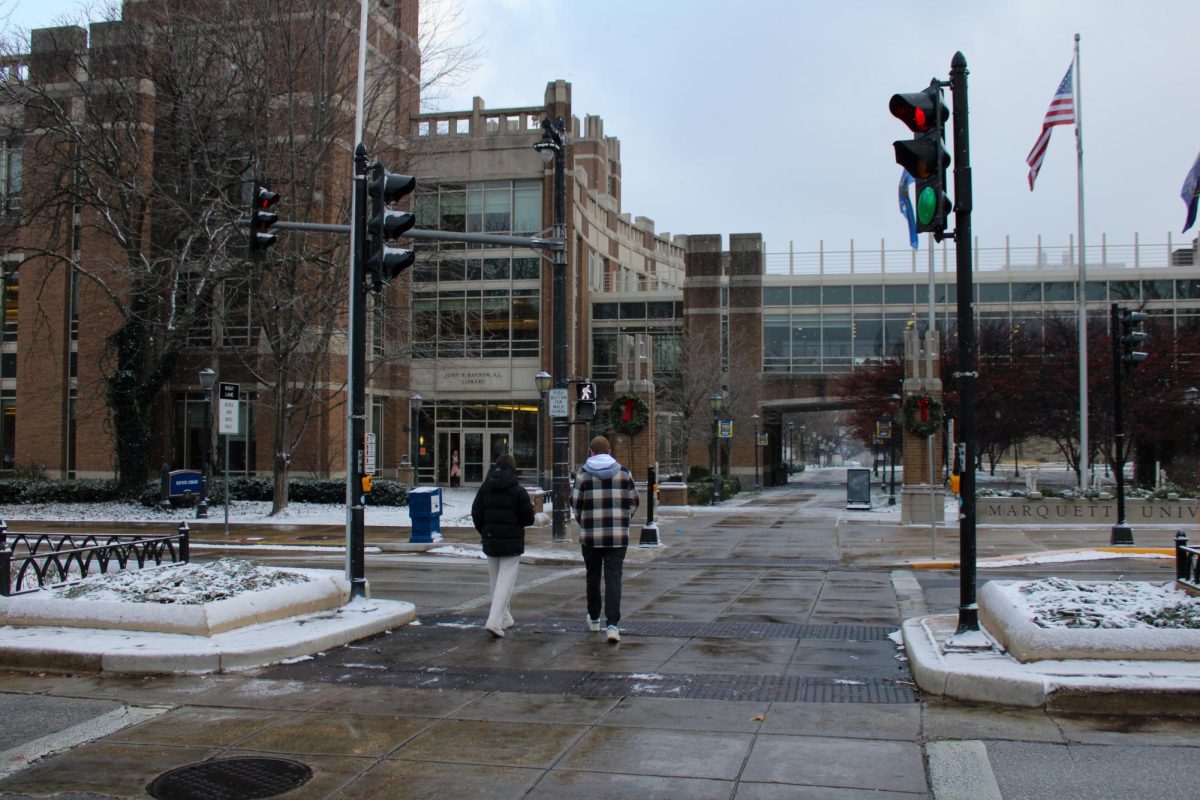In August, University President Michael Lovell wrote an op-ed for the Milwaukee Journal Sentinel calling Milwaukee’s institutions of higher education to the aid of Foxconn, a company hoping to settle in the area.
The Taiwan-based electronics manufacturing company announced plans to build a plant in Racine County last year. Lovell has been vocal about coordinating with the company.
For all of the values Lovell celebrates, it’s ironic that he would be a proponent of a company accused of mistreating and underpaying workers, overhauling workforces with automation and taking advantage of communities desperate for industry.
Foxconn’s actions certainly don’t align with Marquette’s mission, so Lovell’s endorsement of the group raises questions.
Foxconn’s deal with Wisconsin has been controversial, with many Democrats opposing it. It includes a significant incentive package and rolled-back environmental restrictions for the company.
In 2010, Foxconn employees began to die by suicide at a rate so extreme that, to prevent anyone else from jumping off the factory’s roof, the company installed security nets around the building.
Following the suicides, a labor advocacy group in China called Students and Scholars Against Corporate Misbehavior conducted interviews at two Chinese Foxconn factories. The group found that the company had been misleading recruits about the nature of the work, employees were working up to 100 overtime hours a month. Those hours were going unpaid, and workers had not been informed that the chemicals they had been working with were potentially fatal.
This report came out in 2011, and when Foxconn announced plans to build a factory in Wisconsin, it didn’t take long for a savvy journalist to bring the information to public attention.
This information was apparently not a deterrent for Wisconsin, as Gov. Scott Walker has not disavowed the company.
But Walker has his reasons. Foxconn has promised 3,000 jobs over four years, with the potential for an added 10,000 jobs after that. The types of jobs encompassed in those numbers are not explicitly clear, but Walker can’t be expected to ignore the potential for 13,000 jobs for his state.
Any politician has to consider the best way to bring jobs to their state, but Foxconn might not be the safest bet. Last year the company replaced 60,000 assembly line jobs with automated labor, or, if you prefer, robots. It seems clear that rather than improve the conditions for human workers, Foxconn opted to cut those jobs altogether.
It is unclear, if Foxconn does deliver on its promise to provide 3,000 jobs, how secure those jobs will be and whether they will be reserved for blue-collar workers or people already with a background in automated labor.
These jobs pose another concern. Wisconsin has promised Foxconn a $3 billion incentive for building a manufacturing plant in the state. Foxconn has promised the new plant’s full-time employees $25.90 per hour, roughly $54,000 per year. But the $3 billion incentive, paid over 15 years, would cost Wisconsin more than $66,000 per employee every year. Essentially, Wisconsin would be paying the salaries for those 3,000 new jobs, not Foxconn.
The most bizarre thing about this deal, however, is that Foxconn has made promises like these before. In 2011, the company promised to build a factory in Brazil. In 2013, it promised Pennsylvania a similar factory. In 2014, Foxconn signed a deal worth $1 billion in Indonesia that has not yet come to fruition. Lastly, in 2015, it signed a $5 billion contract with India that has yet to materialize.
The company does not have a track record for follow-through.
Lovell wants to partner with companies that are going to hire Marquette graduates, and that’s an admirable goal. But celebrating and relying on a company with a reputation like Foxconn’s is a declaration that principles are secondary to economics, something a university president at a Jesuit institution should be wary of doing.

